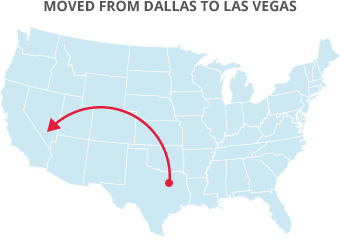


Pack
If you've got the money for it and have really done a super job of purging, engaging movers is not a bad way to go. But if you are similar to a lot of people and are on a bit of a budget and fighting with corralling everything to move, packing yourself might be a sensible choice. Professional packers will pack everything in sight—they are not there to organize your stuff or to judge, packers go in and get the job finished. If something is in their range of vision, it will get wrapped and placed in a box. However, if you plan to pack yourself, get your moving supplies together – boxes, tape guns and newsprint and start boxing as you purge.
This is a strategy that performs well for quite a few people, as you can go ahead and put the things you are moving in a box and be done with it, and simultaneously you are tossing things out and creating your donate/sell piles. If you start well ahead of moving day and allot about two hours every day for purging and packing, you should chip away enough that you are able to manage the last few days fairly stress-free.
Commence with closets, chests, and cabinets, since that's where most people store the stuff they do not even recollect that they have. Save the attic, basement, and garage for weekends when you've got all hands on-deck--let it be known that old basketballs and tubs of mystery cables only get saved if the owner is there to justify why they need to move. Devote a corner of the garage for things you are going to donate; some non-profits will send a truck to pick up your donations and if it is all in one area that is an easy win.
If you are absolutely overwhelmed at the notion of going through everything in your house, think about employing an estate liquidation company. They will come in, help you sort, and then, they can auction furniture, appliances, toys, whatever you want them to. Belongings that don’t make the sale cut are donated or thrown away. If you're packing for your move yourself, there are companies you can employ that will come to your house and haul away your trash for a charge, or by the truckload, if you've got tons of stuff.
Pay
Paying for moving is something that most people don't factor into the costs of the new house, although it can be as costly as your closing costs. Unless you have got a relocation package, you must have a good idea of what costs you're going to take on with a move.
Talk to several moving companies to get an estimate of what you'll be looking at for a full-service move versus one where you pack yourself and have the trucks come load, drive, and unload, and weigh that to what it would be to totally do it yourself and just rent a truck. If you choose to do your own packing, check out the cost of supplies--boxes, tape, padding, and moving blankets for starters. When you are adding everything up, remember the time it will take to do your own packing and loading, and the equipment and expertise you'll need for hefty or awkward furniture. If you have antiques, a piano, or a large safe, can you maneuver them without incident--what will your homeowner’s insurance cover in case you break an antique clock? Movers are more expensive, but they're insured, have the proper equipment and expertise, and are less likely to run into the wall while maneuvering the couch out the door than you.
Moving to a new home and creating a new life is exciting,exhilarating and can be a good experience for your entire family. Paying attention to the three P’s of your move – purge, pack and pay -- by bringing with you only the items you really use and love – allotting time for packing for your move -- and budgeting for the process -- will help make those great expectations a reality.

